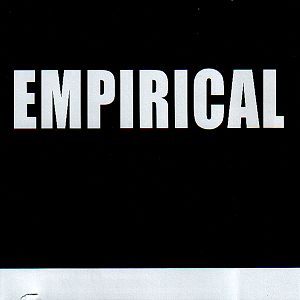1. Blessings
2. Tulumba
3. A Tyrant’s Tale
4. Clapton Willow
5. The Deep
6. Kite
7. Fat Cat
8. Palantir
9. Dark Lady
Shaney Forbes – Drums, percussion
Nathaniel Facey – Alto sax, voice
Jay Phelps – Trumpet, voice
Kit Downes – Piano
Neil Charles – Double bass
Dennis Rollins – Trombone
Courtney Pine – Bass clarinet
This
is the debut album by a new British quintet
(with a couple of guests on unspecified tracks).
Four of the five musicians were members of
Tomorrow’s Warriors and the fifth, Kit Downes,
is a superbly assured pianist. They recently
won the EBU European Jazz Competition, and
they look as if they are destined to go far.
The
line-up is the classic one of trumpet, sax,
piano, bass and drums, and some tracks are
reminiscent of Art Blakey’s Jazz Messengers
– not only because of similar sounds but because
of the thrusting nature of the performances.
But the music is remarkably varied – from
the hustling opening track, via the African
folk moods of Tulumba (a tune by Ali
Farka Touré) and the marching A
Tyrant’s Tale, to the mysterious Dark
Lady. In fact this album is a strange
mixture of precision and raggedness. The precision
is heard in the arranged and unison passages,
where the musicianship is taut, but the group
often moves into a sort of free-form playing
which conjures up the ideas of Ornette Coleman
or John Coltrane. The band even breaks into
chanting on The Deep – which starts
effectively but soon gets on one’s nerves,
as do the repetitive sections later in the
track.
One
commendable part of this variety is that it
shows how the group members have listened
to jazz musicians from all periods and all
styles – as well as a lot of world music.
The influences listed on their website include
Louis Armstrong, Ray Brown and Johnny Hodges,
as well as Parker, Coltrane, and two Colemans
(Colemen?) – Ornette and Steve. These influences
are revealed in the adventurous range of styles.
In this sense they remind me of Wynton Marsalis’s
groups, which never underestimate the importance
of the jazz tradition but usually avoid sticking
too slavishly to traditional methods.
A
track like Fat Cat swings like the
clappers and includes excellent solos from
Phelps, Facey and Downes, in straightforward
post-bop style. But it’s followed by the 15-minute
Palantir, which starts with an
African-type rhythm with hints of reggae but
then changes the beat to something heavier
and more disjointed beneath a convoluted solo
by the tune’s composer, Nathaniel Facey. It
passes through several more transformations
before floating into calm waters.
The
CD was produced by Courtney Pine and appears
on his own label. I have been doubtful about
Courtney’s expertise ever since he said on
his Desert Island Discs: "In America,
a guy called Coleman Hawkins played Body
and Soul – I think it was 1922 – but he
played a wonderful solo on TV and that was
it, the saxophone became a real instrument".
But with this album Courtney seems to have
made a good choice of a group that deserves
to be heard. My dictionary defines empirical
as "based on, concerned with, or verifiable
by observation or experience rather than theory
or pure logic". This band makes music
that transcends theory and creates music that
reflects a wide range of experiences.
Tony Augarde
